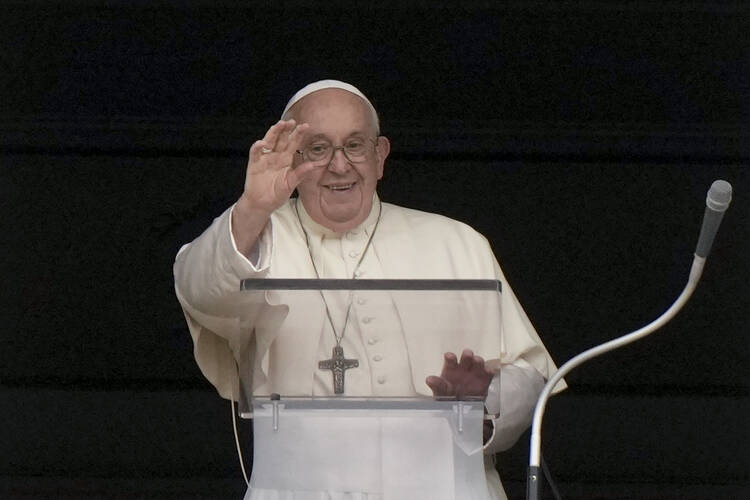VATICAN CITY (AP) — Pope Francis is pressing Catholic theologians to be more in tune with the challenges of ordinary people and urging them to dialogue with non-believers as well as believers of various religions.
In a document, he signed on Wednesday and which was made public by the Vatican, the pontiff noted that he was updating statutes for the Pontifical Academy of Theology, since the last revision was issued nearly 25 years ago by one of his predecessors in the papacy, John Paul II.
“The moment has come to revise these norms, to make them more adaptable to the mission that our time imposes on theology,’’ Francis wrote in the document, known as an Apostolic Letter.
Francis said that theologians must “confront themselves with profound cultural transformations.”
He didn’t mention specific issues. Instead, the pope urged them to adopt “openness to the world, to man, in the concreteness of his existential situation, with its issues, its wounds, its challenges, its potentials.”
Francis said that theologians must “confront themselves with profound cultural transformations.”
Thus, “theological reflection is called to a turning point, a paradigm change” that commits it to “be able to read and interpret the Gospel in the conditions in which men and women daily live, in different geographical, social and cultural environments.” That includes, Francis continued, being able to “enter in the culture, in the vision of the world, in the religious tradition of a people.”
Theology must develop within a culture of dialogue that includes “different Christian confessions and different religions, confronting itself openly with all, believers and non-believers,’’ Francis wrote.
Theology, he said, must not “close itself up in reference to oneself, which leads to isolation and insignificance.”
Francis also said theology needs to be “open to the voice of the peoples, thus a ‘popular’ theology addressed mercifully toward the open wounds of humanity and of creation and within the wounds of human history.” That includes, he said, theologians’ privileging knowledge derived from the “common sense of people.”
When, four months ago, he chose a theological advisor from his native Argentina to lead the powerful Vatican watchdog office ensuring doctrinal orthodoxy, Francis issued a reminder that that department has as its “central purpose” safeguarding church teachings to “give reason for our hope, but not as enemies who point out and condemn.” The Dicastery for the Doctrine of the Faith can discipline theologians deemed to have strayed from Catholic teaching in their writings or speeches.
In his 10-year-old papacy, Francis has repeatedly said the Catholic church must be more attentive to suffering, especially to those living on the margins of society, and, in general, merciful in outlook.
The Pontifical Academy of Theology, an advisory body that occasionally hosts conferences or other gatherings, was established in the early 18th century.








